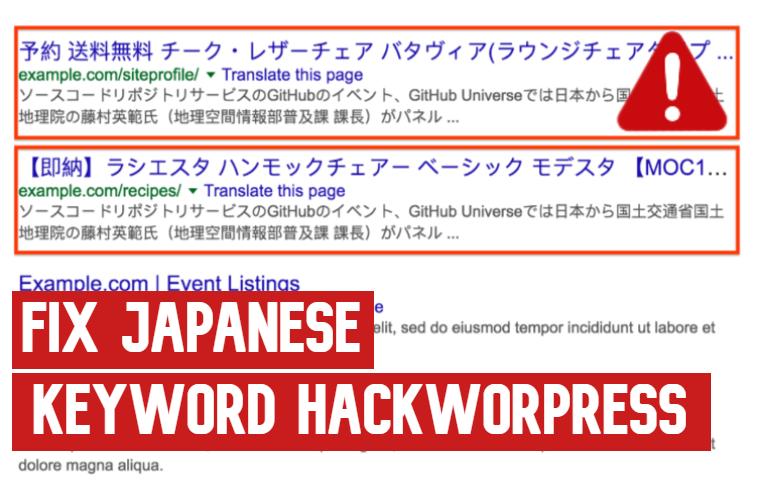Japanese Keyword Hack? Malware Attack? Save Your Brand & SEO With Free Guide!
Today, protecting the brand essence and search engine optimisation (SEO) goes without saying for any known or unknown businesses. However, cyber thieves could destroy your online brand through hacks, like the Japanese Keyword hack, or through malware attacks. This article will introduce yourself with some of the best ways that will defend your brand from such assaults and get your SEO back on track.
Understanding Japanese Keyword Hack?
Unfortunately, the Japanese keyword hack is not one of them, as it poses a complicated problem for a great number of unprotected resources. Thanks to invaders, website content, mostly today in Japanese, is unnoticeably filled with honed-in word keywords guerrilla warfare onpassed their website fakers. But here is what you need to know:
-
- What It Is: This hack usually involves modifying your website’s HTML or injecting spammy content that includes various irrelevant keywords.
-
- How It Affects You: It damages your SEO rankings, confuses your audience, and ultimately harms your brand reputation.
-
- How It Happens: Common methods include exploiting vulnerabilities in plugins, using weak passwords, or insecure server configurations.
The Dangers of Malware Attacks :Japanese Keyword Hack?
Malware attacks can be more severe and destructive than simple keyword hacks. They can lead to data theft, website defacement, and, in some cases, complete website shutdowns. Here’s a brief overview:
-
- Data Theft: Sensitive customer information can be stolen, leading to legal issues and loss of customer trust.
-
- SEO Penalties: Search engines may penalize compromised sites, causing significant drops in organic traffic.
-
- Time and Expenses: Recovering from malware attacks often requires extensive time and financial resources.
Immediate Steps to Protect Your Brand :Japanese Keyword Hack?
1. Audit Your Website Regularly
Perform regular audits to identify vulnerabilities in your website. Check for unpatched plugins, outdated software, and any strange content.
2. Strengthen Security Measures
Implement robust security practices:
-
- Use complex passwords and change them frequently.
-
- Enable two-factor authentication (2FA) for all user accounts.
-
- Install security plugins or web application firewalls.
3. Monitor Your SEO Performance
Keep an eye on your website’s SEO metrics using tools like Google Analytics, SEMrush, or Ahrefs. Be alert to unexpected changes that may indicate a hack.
4. Create Regular Backups
Schedule regular backups of your website to ensure that you can quickly restore your site to a clean version if attacked.
Recovering from Japanese Keyword Hacks and Malware Attacks
If you’ve fallen victim to a Japanese keyword hack or a malware attack, it’s crucial to act quickly. Here are actionable steps to recover:
Step 1: Identify the Attack
Use security plugins or online tools to scan your website for vulnerabilities and malicious content.
Step 2: Clean Up Your Website
Remove any unauthorized content or scripts, and restore your site from a clean backup if available.
Step 3: Change All Passwords
Change passwords for your CMS, database, and hosting accounts immediately. Consider using a password manager for better security.
Step 4: Notify Your Users
Inform your users about the breach if their data may have been compromised. Be transparent to maintain trust.
Benefits of a Proactive Approach Japanese Keyword Hack?
By taking a proactive stance against threats like Japanese keyword hacks and malware, you can enjoy several benefits:
-
- Enhanced brand reputation and customer trust.
-
- A voided decrease in search engine rankings and organic traffic.
-
- Long-term savings by preventing costly repairs.
Case Study: A Real-World Example
Let’s take a closer look at a company that successfully mitigated the risks of a Japanese keyword hack:
| Action Taken | Result |
|---|---|
| Conducted a complete SEO audit | Identified the hack quickly |
| Cleaned the website and removed spam content | Restored original content, improved rankings |
| Enhanced security measures with new plugins | Prevented future hacks and gained SEO trust |
First-Hand Experience: My Battle with Japanese Keyword Hack?
Recently, I faced an alarming incident where my site fell prey to a Japanese keyword hack. It was a stressful period as I witnessed a sudden drop in traffic. Thanks to a thorough security audit and quick actions, I restored my site and improved my security protocols. Sharing my experience, I encourage everyone to stay vigilant and prepared.
Free Resources to Help You
Get these resources to strengthen your site’s security and enhance its SEO:
- Wordfence Security: A very complete security plugin for WordPress.
- Sucuri: A WCM malware removal and protection service.
- Moz: Expert advice on strategizing and tracking SEO.
Conclusion :Japanese Keyword Hack?
A company’s reputation as well as its SEO is enhanced by safeguarding the threats of Japanese keyword hacking and link selling, or more broadly, the need for malware and cyber espionage. This can be localizing the business or servicing website in the local language or shopping domain or applying other promotional means, undertaking marketing and when establishing as well as when confronting the threats posed by disinformation. Taking all of this into consideration, fast action is required in order to stop the harmful consequences of the attack. With this free guide in hand, take control of your online presence, your business will be safe and healthy.
